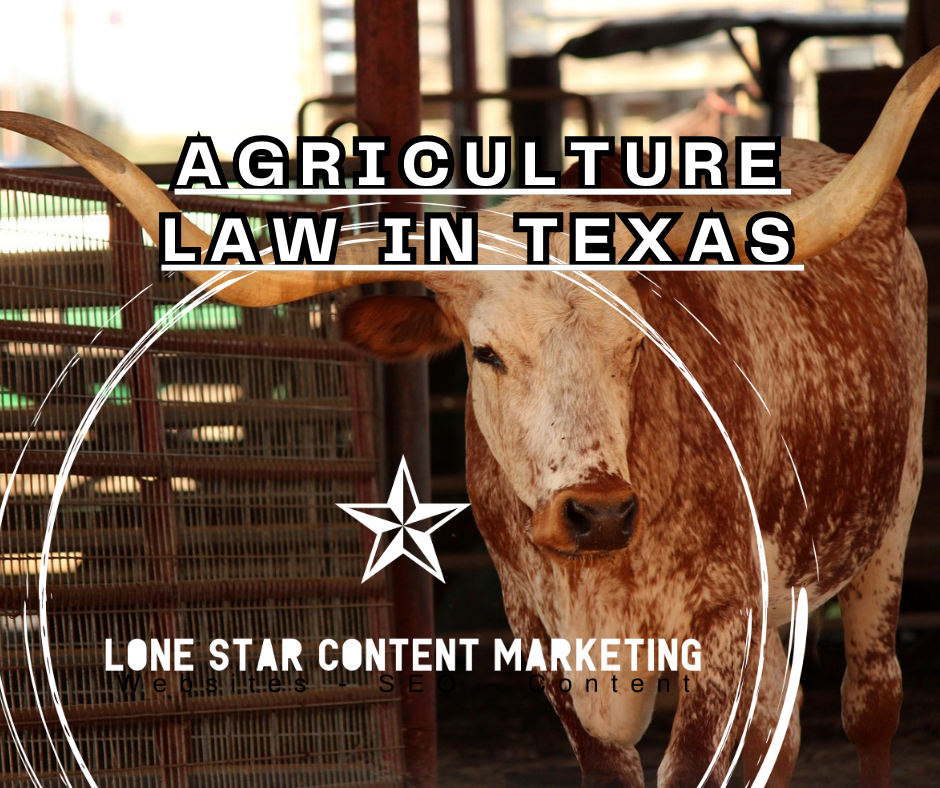Agriculture Law in Texas
Overview:
Agriculture law in Texas addresses various issues affecting farmers, ranchers, and agribusinesses, including land use, water rights, environmental regulations, farm labor, and agricultural finance. This area of law ensures that agricultural practices comply with state and federal regulations while protecting the rights and interests of those in the agricultural sector.
FAQs:
1. What is agriculture law?
Agriculture law covers legal issues related to farming and ranching, including land use, water rights, environmental compliance, labor laws, and agricultural financing.
2. Who regulates agriculture in Texas?
The Texas Department of Agriculture (TDA) regulates agricultural activities in the state in conjunction with federal agencies like the U.S. Department of Agriculture (USDA) and the Environmental Protection Agency (EPA).
3. What are water rights, and how do they affect farmers in Texas?
Water rights determine the legal entitlement to use water from rivers, streams, and aquifers. In Texas, water rights are governed by riparian and appropriative systems, affecting how farmers access and use water for irrigation.
4. How are environmental regulations enforced in agriculture?
Environmental regulations ensure sustainable farming practices and protect natural resources. Compliance with the Clean Water Act, Clean Air Act, and other federal and state regulations is mandatory.
5. What are the labor laws affecting farm workers in Texas?
Farm labor laws cover wages, working conditions, housing, and safety standards. The Fair Labor Standards Act (FLSA) and the Migrant and Seasonal Agricultural Worker Protection Act (MSPA) are key federal laws protecting farm workers.
6. How can farmers finance their agricultural operations?
Farmers can access financing through loans, grants, and subsidies from federal and state programs. The USDA offers various financial assistance programs to support farm operations and improvements.
7. What are the legal considerations for selling agricultural products?
Selling agricultural products involves complying with food safety regulations, labeling requirements, and marketing laws. Direct-to-consumer sales, farmers’ markets, and agricultural cooperatives have specific legal guidelines.

